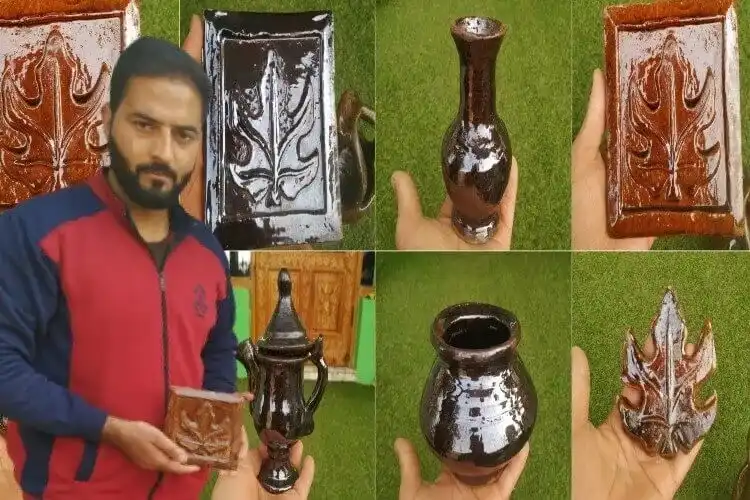
Ehsan Fazili/Srinagar
If you ask today young men and women in Kashmir about glazed earthen or Roghane pots, you are likely to see their blank expressions. This is not surprising since the art of glazing the terracotta pots had almost become extinct during the last four decades though earlier it was sold in shops.
The glazed pottery of Kashmir was loved by tourists and pilgrims as these were regularly sold around the places of worship and shrines in Kashmir, be it Jamia Masjid in Srinagar or the shrine of Sheikh Nooruddin Wali at Chrar-e-Sharief in central Kashmir, Budgam.
The credit of the revival of the glazed pottery goes to the 26-years old Mohammad Umar Kumhaar, belonging to one of the families of pot-makers, who are still carrying on this traditional art of clay pottery, from the Nishat area in Srinagar outskirts.
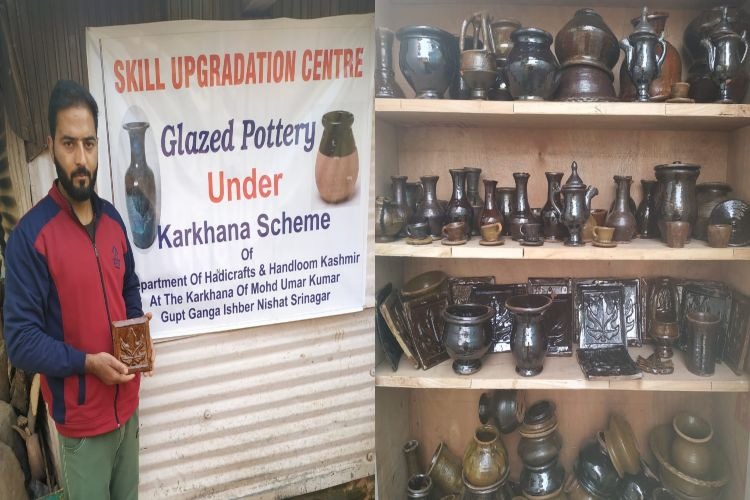
Mohammad Umar Kumhaar at his center; the glazed terracotta pots made by him (Right)
Ever since Umar graduated in Commerce from Srinagar’s Gandhi Memorial College in 2019, he had been “seriously thinking” of reviving the family trade, for he realized it would be liked up by buyers. The production and sale of earthen pots from traditional potters or Kumhaars in Kashmir have been with a few families.
“It was common up the to early 1980s….after that the demand decreased”, Mohammad Umar Kumhaar told Awaz-the voice. He said that it required more manpower and resources. He also knew that demand for such goods has decreased because the makers were not innovating new designs.
Umar continued to help his family in the making and sale of the commonly used earthen pots in Kashmiri households, and yet his mind was thinking of finding ways to increase the sales. Finally, he zeroed on to the glazed pottery.
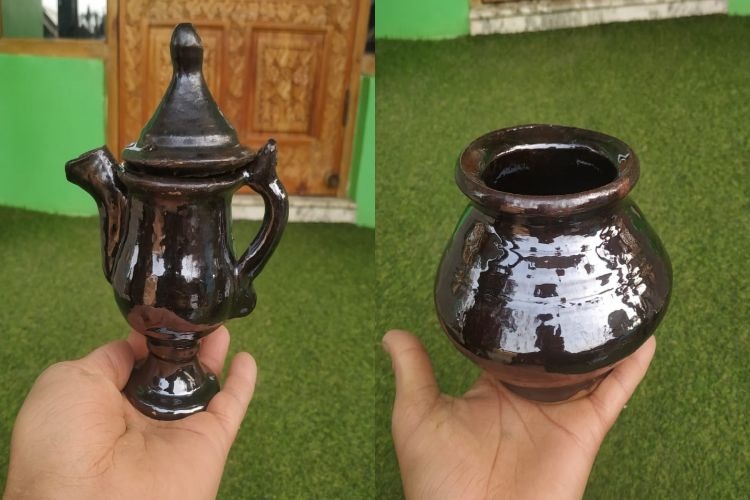
Beautiful pieces of glazed terracotta made by Umar Kumhaar
“I started surveying the market of glazed pottery and also learning how to make it”, he said. He found in Kashmir only one person - Ghulam Ahmad Kumhaar – who lived in Khanyar, downtown Srinagar, who had kept this ancient art alive.
This art would have died with Ghulam Ahmad Kumhaar who was in his early 80’s when Umer approached him, about six months ago. “I got interested in art and learned it from the octogenarian Kumhaar for about four months,” said Umar. After four months, he could set up a full-fledged center at his house with the help of the Handicrafts Department of Jammu and Kashmir.
“This art is also environment friendly,” says Umer. The glazing of earthen pots, tiles, and decoration pieces, is made by using waste products like broken glass, iron dust, copper dust, eggshells, and dry cell rods, he explains.
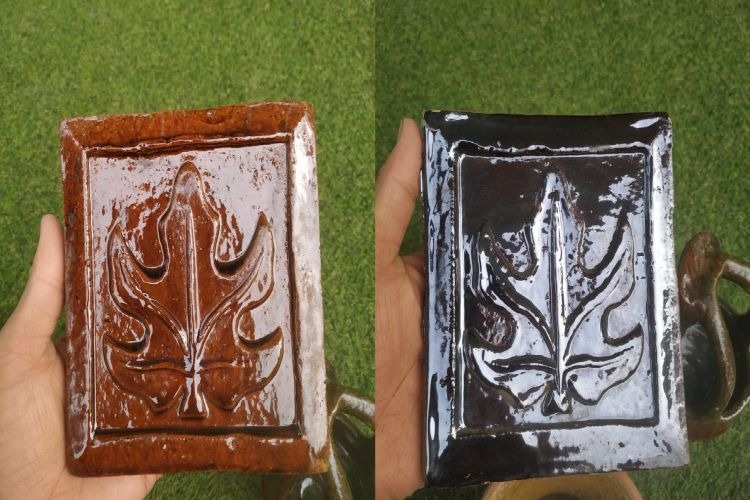
A glazed terracotta tile made by Umar Kumhaar
“I started the center (at his house) two months ago, polishing and paneling the pots in different colours,” Umar Kumhaar said. “This is not the end of it all…..it would be incomplete without the go-ahead from the senior Kumhaar (Ghulam Ahmed Kumhaar),” he adds.
Ghulam Ahmad Kumar later inspected his center and expressed his satisfaction over its performance and functioning. Not only that, the J&K Government’s Handicrafts Department has also come forward providing assistance to train the youth to revive the art. “It (Handicrafts Department) provides Rs 2,000 each to provide training for the new learners,” Umar said.
The Department also provides funds for the material used in the glazing of pottery, he added. According to Mahmood Ahmad Shah, Director Handlooms and Handicrafts, Kashmir, Jammu and Kashmir, “glazed pottery was a dying art, which has been revived with the efforts of the young Umar.”
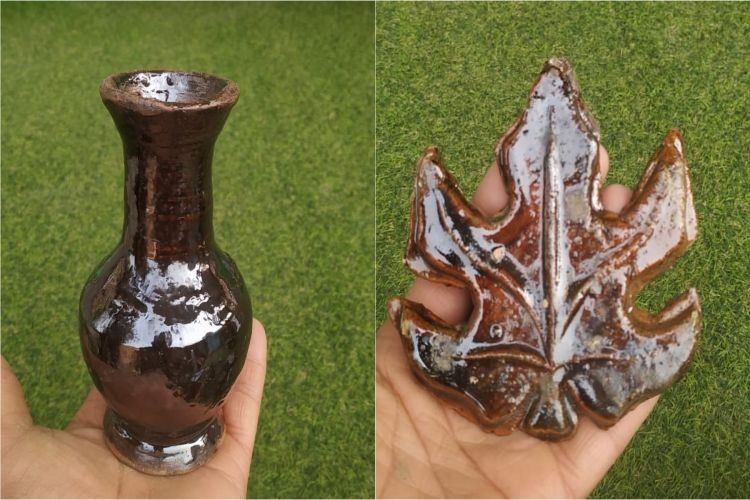
Glazed terracotta artefacts created by Umar Kumhaar
“We have received orders in the past two months,” Umar said. Besides, he is expecting more orders in the coming days. He has already got an order for 800 glazed decorating tiles. “It is enough for the time being, as we cannot produce more items in the beginning,” he adds.
Also Read: Dr Ali Jan, Kashmir's 'magic healer' and his family of spiritual leaders
Umer finds a market both at the national level (Bangalore) and at the international level. He feels sanguine with the 100 percent job guarantee in the trade which promises an increasing demand.
